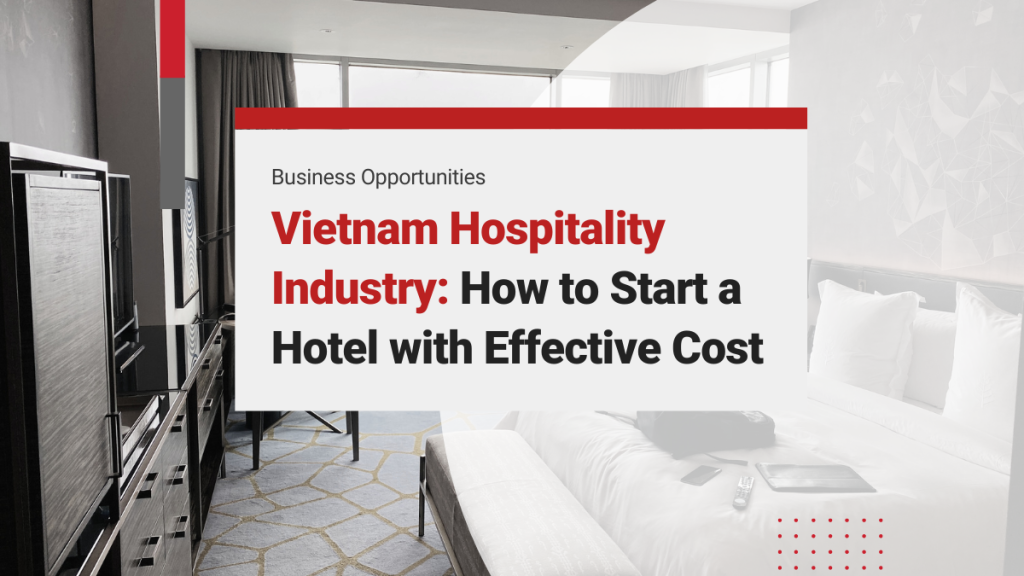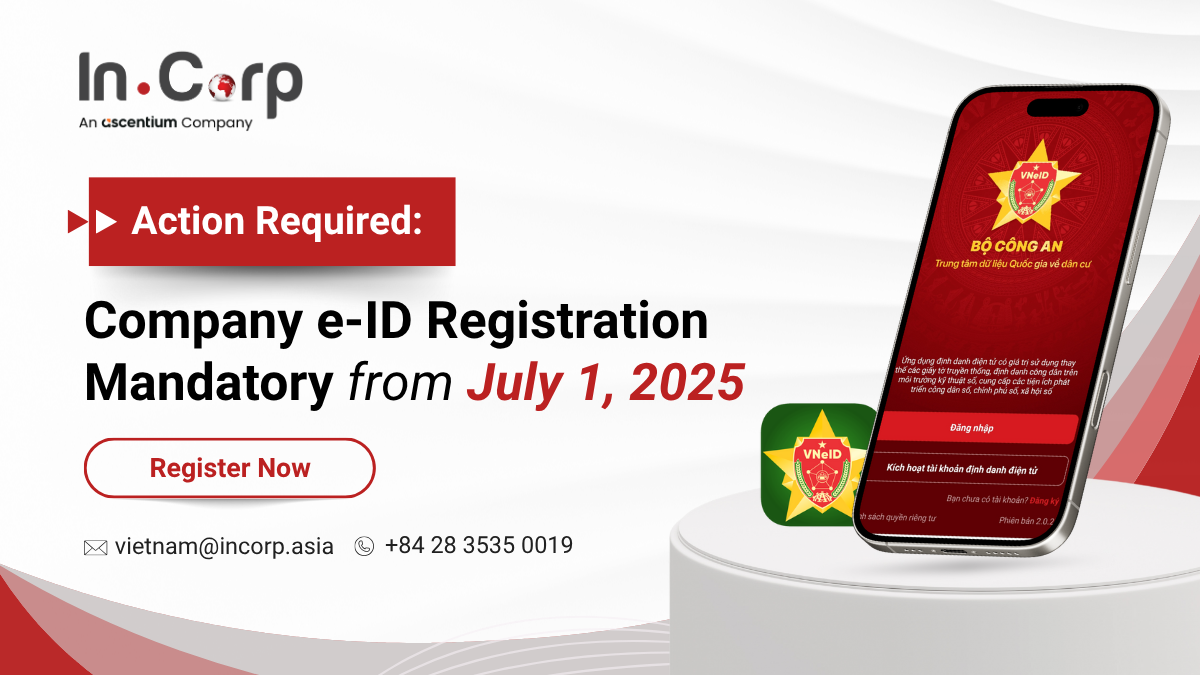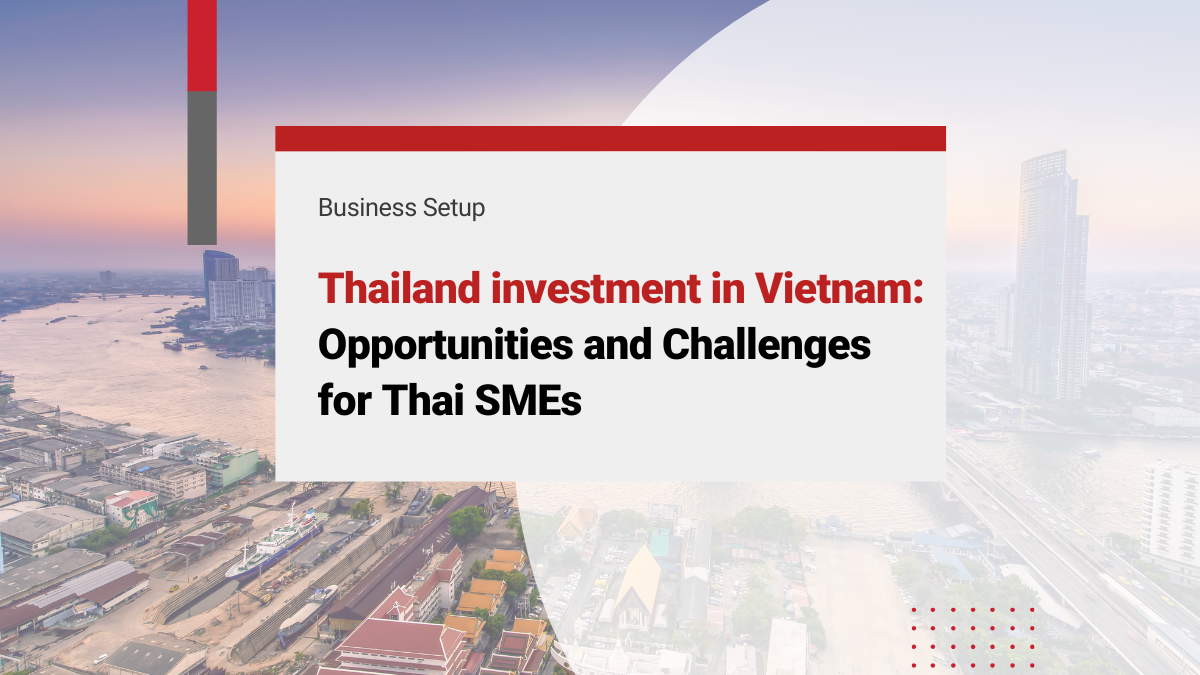Drawn by its rich cultural heritage, historical treasures, enchanting coastlines, and diverse landscapes, Vietnam’s tourism and hospitality industry has emerged as a lucrative opportunity for global investors. However, recent governmental restrictions, including border closures, have affected hotel owners in thriving tourist destinations like Nha Trang.
Many hotels are now for sale at reduced prices due to the disruption caused by these restrictions. This article delves into the myriad considerations necessary for starting a hotel in Vietnam.
Interested in Establishing a Hotel in Vietnam? Check out InCorp Vietnam’s Company Setup Services
Motivational Factors and the Vietnam Hospitality Industry
Vietnam’s hospitality industry has demonstrated remarkable resilience and growth by generating a substantial revenue of US$2.69 billion in the current year. Besides, the industry forecasts a 14% CAGR (Compound Annual Growth Rate) amid global economic and political fluctuations and promising growth.
Tourism Industry in Vietnam
Many developing countries are currently expanding their tourism industries. The Vietnam National Administration of Tourism (VNAT) has revitalized Vietnam’s tourism industry to its peak. In 2019, the tourism industry advanced to 63rd out of 140 economies in the World Economic Forum’s report. It also received prestigious awards from the World Travel Awards, including
- World’s Leading Heritage Destination
- Asia’s Leading Cultural Destination
- World’s Best Golf Destination
- Asia’s Leading Destination
- Asia’s Leading Culinary Destination.
Vietnam stayed committed to implementing the Political Bureau’s Resolution No. 08-NQ/TW, focusing on tourism as an essential economic sector. Following the upheavals of the COVID-19 pandemic, global tourism experienced a gradual recovery, particularly in Asia.
Vietnam saw around 3.5 million international visitors in 2022, along with the increase in the Travel and Tourism Development Index. In the historic capital of Hanoi, the government plans to invest US$76.3 million in five key infrastructure projects for its outskirts. By 2025, approximately US$21 billion will be needed for Hanoi’s infrastructure development.
Vietnam is exploring the possibility of extending visa exemptions to countries such as the US and European nations expanding their tourism industries. The government has introduced a monetary and fiscal policy of approximately US$4.95 billion to support socio-economic recovery and infrastructural development.
Read Related: Hanoi Business Incorporation Guide: Opportunities, Requirements, and How-To Steps
Hotel Industry in Vietnam
Vietnam’s hotel market is on the brink of significant expansion, propelled by the resurgence of the tourism sector, particularly international tourism. Statista’s projections suggest substantial revenue growth, with estimates hitting a notable US$1.49 billion for the ongoing year. In 2022, Vietnam’s largest city Ho Chi Minh welcomed nearly 3.5 million international tourists. Positive signals for the tourism market were expected in 2023 with the resumption of flights between China and Vietnam.
The total recovery of Chinese tourists, constituting one-third of Vietnam’s total tourist arrivals, led to a 20% increase in arrivals for the year. Savills predicts that this will expedite the recovery of Vietnam’s hotel and resort real estate market. This optimistic outlook, marked by a robust annual growth rate (CAGR 2023-2027) of 7.32%, will result in a market volume of approximately US$1.98 billion by 2027. Additionally, The Hotel Construction Project Pipeline in Vietnam is poised to drive growth in the Vietnam hospitality industry.
Read Related: 9 Reasons to Choose Ho Chi Minh City in Vietnam to Launch Your Business
According to the TOPHOTELPROJECTS construction database data, Vietnam is poised to welcome 54,038 new rooms into its Vietnam hospitality sector. The major cities, notably Ho Chi Minh City and Hanoi, are set to experience a significant influx of new hotels.
There has been a significant rise in upscale accommodations, indicating a surge in luxury tourism. According to Savills’ forecast, Ho Chi Minh City was expected to add over 5,000 rooms to its market by 2023, primarily in the central business district. Among the 130 hotel projects featured, 75 are slated to offer four-star accommodations, while the remaining 55 are committed to providing five-star service.
With 15 new properties totaling 7,323 rooms, Ho Chi Minh City leads in new hotel developments, followed by Hanoi with 13 new buildings consisting of 4,242 rooms. Da Nang is also expected to see 11 new properties with a total of 2,933 rooms.
Read More: Why You Should Invest in Vietnam’s Tourism and Hospitality Industry?
Restaurant Industry in Vietnam
As per iPOS.vn, Vietnam boasted approximately 338,600 restaurants and cafes in 2022. Ho Chi Minh City emerged as the frontrunner with the highest number of restaurants, accounting for 39.78% nationwide. This figure is nearly three times greater than Hanoi, which secured the second position in terms of restaurant numbers.
Based on interviews with almost 4,000 diners, food and beverage quality and pricing are key factors when choosing an outdoor restaurant. Vietnamese typically budget VND 40,000 to VND 70,000 for coffee outings but are open to spending up to VND 500,000 for special dining occasions.
More remarkably, 77.16% of diners maintained or even increased their food spending in 2023. This trend suggests that despite anticipated economic challenges in 2023, many diners remain committed to investing in culinary experiences.
In 2022, the revenue scale of Vietnam’s F&B industry was estimated at around VND 610 trillion, with VND 333.69 trillion explicitly attributed to the eating-out market. Nearly 3,000 restaurants and cafes were surveyed. A significant portion, comprising 46.5% of F&B businesses, was initiated online sales.
Nonetheless, an encouraging 82.8% of F&B enterprises have embarked on the digital transformation journey. This transformation primarily involved several aspects, including:
- The integration of digital solutions for sales
- Inventory management,
- Procurement of raw materials,
- Other business operations
Some important restaurant chains in Vietnam, including Kichi Kichi, King BBQ, Hotpot Story, and Sumo BBQ, engage in fierce competition, like:
- KFC
- Lotteria
- Pizza Hut
- The Pizza Company.
Additionally, some restaurant chains are part of larger conglomerates such as Golden Gate, Redsun, and Redwok, which own prominent restaurant brands in Vietnam.
Read More: Food & Beverage Industry in Vietnam: Market Overview and Investment Opportunities for Foreigners
How can Foreigners Own a Hotel in Vietnam?
As per Vietnamese legislation, foreigners have the opportunity to own hotels fully. They must obtain a tourist operating license to operate a hotel for tourism purposes for up to 50 years.
The key steps involved in owning the hotel industry in Vietnam for foreign investors typically include:
- First, you must obtain an investment registration certificate (IRC) by submitting the necessary documents and information to the authorities for approval.
- Then, you must set up your business establishment by registering your hotel project as a legal entity in Vietnam. For this, the documents required are:
- Articles of association
- Legal representative information
- Capital registration.
- Ensuring the acquisition of appropriate land is paramount for foreign investors. They secure land by leasing from either the State or Vietnamese economic organizations, negotiating agreements, and obtaining approvals and documentation for land use rights.
- Before starting construction, obtaining a construction permit from the local Construction Department or relevant authorities is essential.
Acquiring Ownership of a Pre-existing Hotel Property
Acquiring an existing hotel property in Vietnam as a foreigner requires a thorough understanding of hotel ownership regulations and diligent due diligence. This comprehensive process entails the following:
- The analysis of the individual owner and associated parties
- Identify potential risks or difficulties that occurred in the past or could arise in the future
- The credibility of the hotels and vendors
- Outstanding debts or any tax issues
Establishing Collaborative Ventures With Local Investors
For a foreigner interested in establishing a joint venture for the hotel industry in Vietnam, here’s a step-by-step guide:
- First of all, register your company with the Trade Register. It includes applying for the required hotel, business, and tourism licenses.
- You must obtain a tourism operation license to offer tourism services
- Then, you must engage a local partner with a special permit issued under the Law on Tourism Services and Hotel Services in Vietnam.
- Apply for a license for international tourism operations.
- You must ensure compliance with technical service requirements like voluntary registration to rank as per Vietnam’s national standards.
- Seek assistance from local consultants and lawyers with licensing procedures and approvals to start up a hotel in Vietnam.
Relevant Paperwork and Legal Considerations
Opening a hotel in Vietnam entails adhering to specific procedures linked to investment registration and company licensing. It includes:
- Investment Registration: Foreign investors must register their investments with relevant authorities in compliance with Vietnamese government regulations. For this, you have to submit your investment proposal, such as
- The hotel project’s location
- Size
- Scope
- Expected investment capital
- Business Licensing: It will grant you legal permission to operate your hotel industry in Vietnam.
Besides, it’s essential to consider employment and labor regulations when starting a hotel business in Vietnam. Below are some important points you should consider:
- Follow the country’s labor law provisions for minimum wages, overtime pay, working hours, and social insurance contributions.
- Written contracts of employment
- Enforce occupational health and safety standards
- Work permit, obtained officially through Labor departments
- Employees’ Social insurance fund
- Good relations with employees with effective communication
Regulations on Land Use Rights and Property Ownership
Land use rights and property ownership regulations are also important to initiating a hotel business in Vietnam. The key considerations:
- Land Use Rights: To set up a hotel, you must secure the necessary land use rights, typically involving leasehold rights with options for renewal.
- Land Allocation or Lease: Foreign entities must obtain land use rights through lease agreements or government allocation, usually lasting 30 to 50 years or longer.
- Land Use Planning: Ensure hotel location aligns with local land use planning, adhering to zoning regulations for commercial or tourism purposes.
- Land Use Conversion: Land use rights may require conversion for different purposes, necessitating local authority approval and compliance with specific conditions or restrictions.
- Property Ownership: Foreign entities can own hotel buildings and infrastructure while leasing or holding land use rights, as direct land ownership is not allowed for foreigners in Vietnam.
Taxation and Financial Reporting
The below tax and financial reporting you must take into account while starting a hotel in Vietnam.
- Obtain a Tax Identification Number (TIN) by registering your hotel business with tax authorities.
- Get Corporate Income Tax (CIT) to ensure accurate financial record-keeping and adhere to tax filing obligations.
- Collect and pay Value Added Tax (VAT) on hotel services with a standard rate of 10%
- Maintain accurate financial records and prepare financial statements as per Vietnamese accounting standards.
- Deduct and pay payroll taxes and social insurance contributions for the employees.
Timeline and Duration
When starting a hotel business in Vietnam, acquiring permits and licenses requires approximately 3-4 months. It includes:
- The investment registration certificate: 15 to 45 working days
- The business registration certificate: 3 to 10 days
- Construction permits: Several weeks
- The hotel business license: 15 to 30 working days
- Safety permits: A few weeks
Several factors that influence the project duration are:
- Completeness and accuracy of the submitted documentation
- The efficiency of government procedures and processing time
- The complexity of the project, as larger or more complex projects, may mandate additional inspections, reviews, and permissions.
- Location of the hotel
- Compliance with regulations is crucial. Identifying and resolving review issues promptly prevents delays.
- External factors like policy changes, legal frameworks, or unforeseen events can affect process duration.
Investment Opportunities in Vietnam: Buying a Hotel
When purchasing a hotel or rental property in Vietnam, knowing all relevant rules and regulations is crucial.
- Ownership: According to Vietnamese laws, foreigners can fully own a hotel but need a tourist operating license for commercial use. This license duration can extend up to 50 years, with the potential for validity extension.
- Due Diligence: It is gathering crucial information before purchasing a hotel. The details include associated partners, potential debts, financial issues, the hotel’s rating, and registration with the Ministry of Tourism. It allows for assessing the trustworthiness of the hotel or vendor by examining past difficulties and potential future risks such as debt or tax evasion. Vigilance is key during due diligence to ensure all paperwork is in order.
Other Considerations Before Buying a Hotel in Vietnam
Fire Safety
- Seek approval from relevant authorities for firefighting plans.
- Establish self-defense forces trained in firefighting and prevention to respond to immediate fire control needs.
- Ensure electricity systems comply with stringent fire safety regulations.
- Develop and review firefighting and prevention plans for newly constructed residential zones.
Ranking Registration
Before proceeding with the transaction, thoroughly assess the hotel’s star ratings. Ensure it is registered with the Ministry of Tourism.
Capital Investment
A foreigner under 100% sole proprietorship is exempt from any minimum capital requirements.
Prime Locations for Purchasing Hotels in Vietnam
Hotel owners like Nha Trang and Da Nang are listing their properties for sale due to the significant impact of successive COVID-19 waves. Many hotels, which struggled through the second and third waves of the pandemic, only to be weakened further by the fourth wave, are now for sale. Prices range from USD 879k to USD 13 million, with most falling between USD 1.3 million and USD 3 million. Post-Covid, there’s an imbalance between hotel sellers and buyers, with more sellers than buyers.
Conclusion
Establishing a hotel industry in Vietnam as a foreign investor offers opportunities and challenges. The country’s tourism industry is thriving with positive government initiatives and infrastructure investments. However, navigating legal requirements and obtaining necessary licenses is essential.
Foreign investors should explore Vietnam’s hotel market potential to capitalize on opportunities. Due diligence is crucial for a successful transition from the previous owner. Seeking personalized guidance from professionals specializing in hotel business setup and hotel management ensures informed decision-making. Consulting experts familiar with hotel operations in Vietnam ensures a smooth journey in starting a hotel.
How Can InCorp Vietnam Assist?
Establishing a business venture in Vietnam requires in-depth market research and strategic decision-making. First, you must decide on your company’s legal information, business operations, and licenses.
At InCorp Vietnam, our experienced legal experts guide you in optimizing your hotel business. It offers comprehensive support, including
- Company registration
- Business setup,
- Ongoing management services
- Offer advice to foreign entrepreneurs for Vietnam’s dynamic business landscape.

clients worldwide

professional staff

incorporated entities in 10 years

compliance transactions yearly
Learn the Right Setup for Business
Expansion in the Vietnam
Frequently Asked Questions
How Much Is Hotel In Vietnam
- Hotel prices in Vietnam vary by location and quality, ranging from $10–$30 per night for budget options, $30–$80 for mid-range, and $100 or more for luxury accommodations. Major cities and tourist areas tend to be more expensive.






